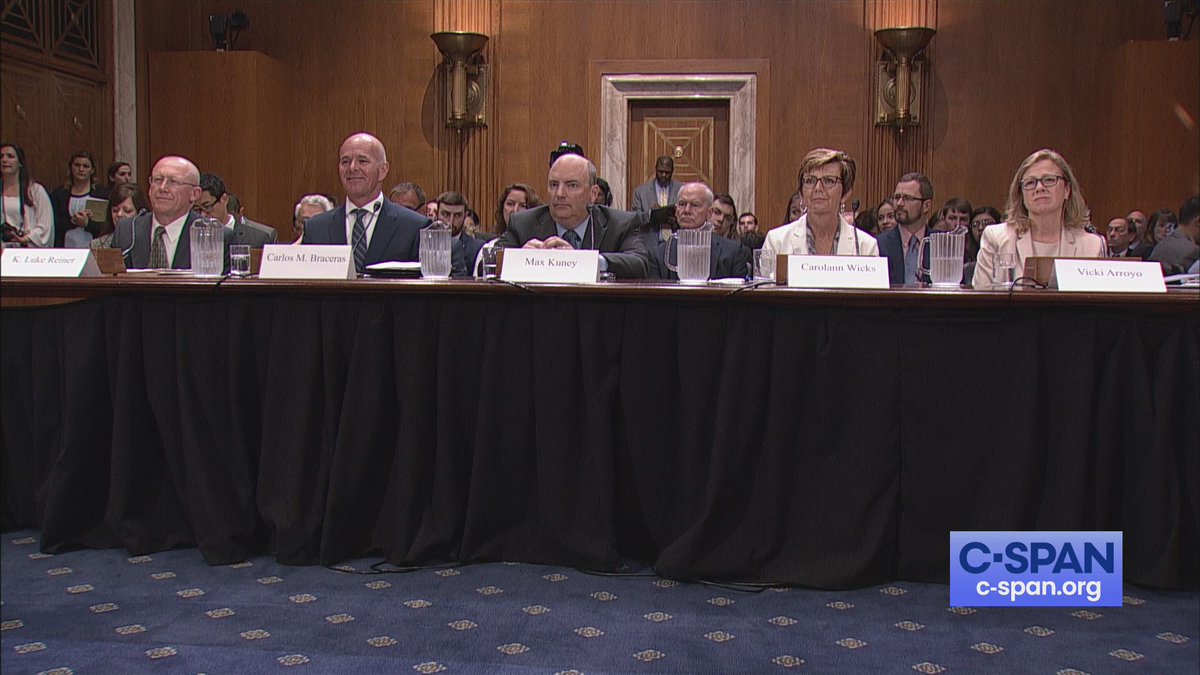
Experts in the transportation industry told a U.S. Senate panel on Wednesday that passing long-term surface transportation legislation is critical to maintaining the country’s highways, bridges, transit systems and other key infrastructure.
During a Senate Committee on Environment and Public Works hearing, experts said Congress needs to approve a five-year reauthorization of the Fixing America’s Surface Transportation (FAST) Act before it expires on Sept. 30, 2020. Transportation stakeholders also cited the need for greater funding flexibility and fewer regulatory burdens on state departments of transportation.
U.S. Sen. John Barrasso (R-WY), chairman of the committee, said members have been working on drafting bipartisan highway infrastructure legislation. “It is our shared goal to advance a bill out of committee this summer,” Barrasso said.
Witnesses urged Congress to pass a long-term transportation infrastructure bill instead of short-term extensions before the authorization of federal highway funding expires. Lawmakers must determine where the funding will come from, especially as the Highway Trust Fund, which primarily relies on federal gas tax revenue, faces insolvency by 2021.
“We have crumbling roads and bridges and they desperately need to be repaired or replaced,” Barrasso said, adding, “Projected population growth and existing congestion require states to build new capacity to meet future needs.”
Carlos Braceras, who serves as both president of the American Association of State Highway and Transportation Officials (AASHTO) and the executive director of the Utah Department of Transportation, testified that the country’s infrastructure could face compromised safety, degraded quality of life and decreased global competitiveness without adequate, long-term funding.
“Despite substantial and recurring funding challenges facing transportation, the investment backlog for transportation infrastructure continues to increase – reaching $836 billion for highways and bridges and $122 billion for transit according to the United States Department of Transportation,” Braceras said in his prepared testimony. “According to the Congressional Budget Office in order to simply maintain the current Highway Trust Fund (HTF) spending levels adjusted for inflation after the FAST Act, Congress will need to identify $90 billion in additional revenues for a five-year bill through 2025; $114 billion would be needed to support a six-year bill through 2026.”
Braceras said AASHTO recommends Congress not only fund a reauthorization bill for multiple years, but also maximize federal formula-based dollars provided directly to states rather than opting for new funding means.
“The formula-based program framework built the Interstate Highway System and the National Highway System, the backbone of our national network of roads and bridges that drives our national economy,” he said. “This remains the optimal approach to underpin the next surface transportation legislation that will serve all corners of our country – by improving mobility and quality of life in urban, suburban and rural areas.”
The funding measure also needed to span five or six years, he said.
“A lack of stable funding makes it nearly impossible for state departments of transportation to plan for large projects that need a reliable flow of funding over multiple years,” he said.
Without steady funding, he said, those planning state projects must guess at the monies that will be available to them and cancel those projects if the funding doesn’t come through.
“Unless we find new money we’re going to be obligated at about 50 to 51 percent of what’s available in the Highway Trust Fund. If the funding isn’t there or is delayed, it breaks down those projects,” he said. “Every one of those projects is needed; it’s anticipated. They’re safety projects. They’re projects that improve the infrastructure. Having long-term predictability of funding is really key to building the public’s trust in order to build the right projects.”
K. Luke Reiner, director of the Wyoming Department of Transportation, said not reauthorizing the FAST Act for multiple years would mean larger state projects would not get done.
“The impact would be a change in how we do business,” he said. “It would mean slower delivery on smaller projects because of the uncertainty. There will be many safety projects that will be deferred.”
Experts also pushed for lawmakers to consider climate change and giving states the flexibility to invest in innovative materials and building processes. By eliminating some regulations and allowing states to make their own decisions, the experts testified, states could not only fund projects for less money and that take less time to complete, but could also prepare their communities for the effects of uncertain weather patterns, like the 6 inches of rain in Washington, D.C. recently, or the flood in the Midwest this spring.
“The infrastructure that we’ve built over the last 100 years is not the infrastructure system that we’re going to need for the next 100 years,” Braceras said. “It needs to change and we need to help it adapt.”
Witnesses recommended Congress look into a Vehicle Miles Traveled fee based system that would replace gas taxes as a way of funding the HTF. As more electric cars and trucks enter the transportation sector, gas tax revenue continues to decline, they said.